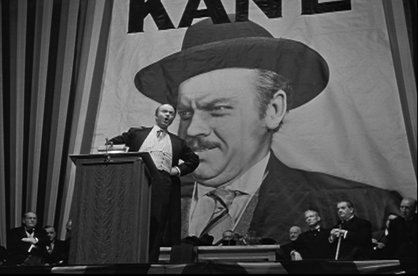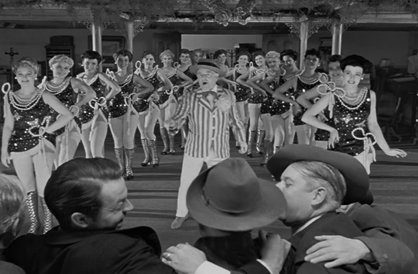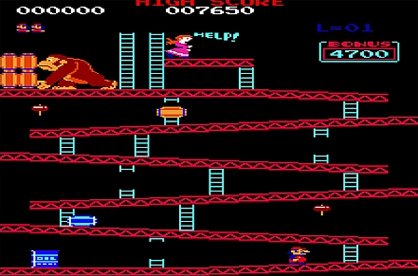The Citizen Kanes of videogames
Let the critics pine for a medium-changing masterpiece – we've got 25 games that already qualify

Above: Plenty of games have already had as much impact on their medium as this had on film
To be sure, Citizen Kane is a hugely important film, but not because it brought out a particular emotional reaction from its audience, or because it’s necessarily the “best.” For starters, it pioneered certain camera techniques – like low-angle shots, which made its characters appear looming and huge, and “deep focus,” which made every object in every shot look equally clear – while expertly combining nearly every available trick and angle used in genres ranging from Westerns to German Expressionism. It was also one of the first films to break up its chronology, telling its story mostly through flashbacks and turning its apparent “hero” – a reporter trying to learn the meaning of publishing magnate Charles Foster Kane’s last words – into a background character and audience surrogate. It didn’t so much break new ground as it broke down barriers, showing the public that film was an art form without limits or restraints, and that it could be used to tell stories in ways that would be impossible in any other medium.

Above: Notice how the people in the foreground are just as clear as the people and objects in the background? That's Citizen Kane's deep focus at work
At that, Citizen Kane wasn’t even all that widely appreciated when it was released, becoming a middling financial and critical success at best. It certainly didn’t “legitimize” movies as an art form, which is what the “we need a Citizen Kane” crowd seems to expect a monolithic masterpiece to do for games.
However, Citizen Kane did push its medium forward, and it was a watershed masterpiece that was hugely innovative from a technical standpoint, hugely influential in film circles and – for those who appreciated it – forever altered perceptions of what movies could be. And if those are the criteria for a medium’s “Citizen Kane,” then what follows are 25 games that have already filled those particular shoes:
Donkey Kong
Released 1981
Pioneered: Jumping, damsels in distress, telling a complete story with a beginning, middle and end.
Sign up to the GamesRadar+ Newsletter
Weekly digests, tales from the communities you love, and more
Influenced: Every game to ever feature a stubby-looking mascot, a “jump” button or a strong story.
Why it qualifies: If you don’t equate Donkey Kong with revolutionary gameplay, it’s only because the ideas it introduced were so outrageously important, and became so popular, that they seem basic and commonplace today. In truth, just about every modern game owes a deep debt to Donkey Kong, which pioneered concepts like jumping between platforms, grabbing weapons to use against enemies and, most importantly, using games as a medium to tell stories.

Other games had tried tacking on simple narratives, like the brief, goofy cutscenes wedged in between certain levels of Pac-Man, but Donkey Kong was the first to tell a complete story, which began with Pauline’s kidnapping at the hands of an ape, continued with Mario giving chase and ended with Pauline’s eventual rescue. It was a paper-thin melodrama, sure, but it bulldozed the medium forward like few other games. If you want a clear watershed – one by which you can easily identify which games came before and which came after – Donkey Kong might as well be labeled Year Zero for modern gaming.



